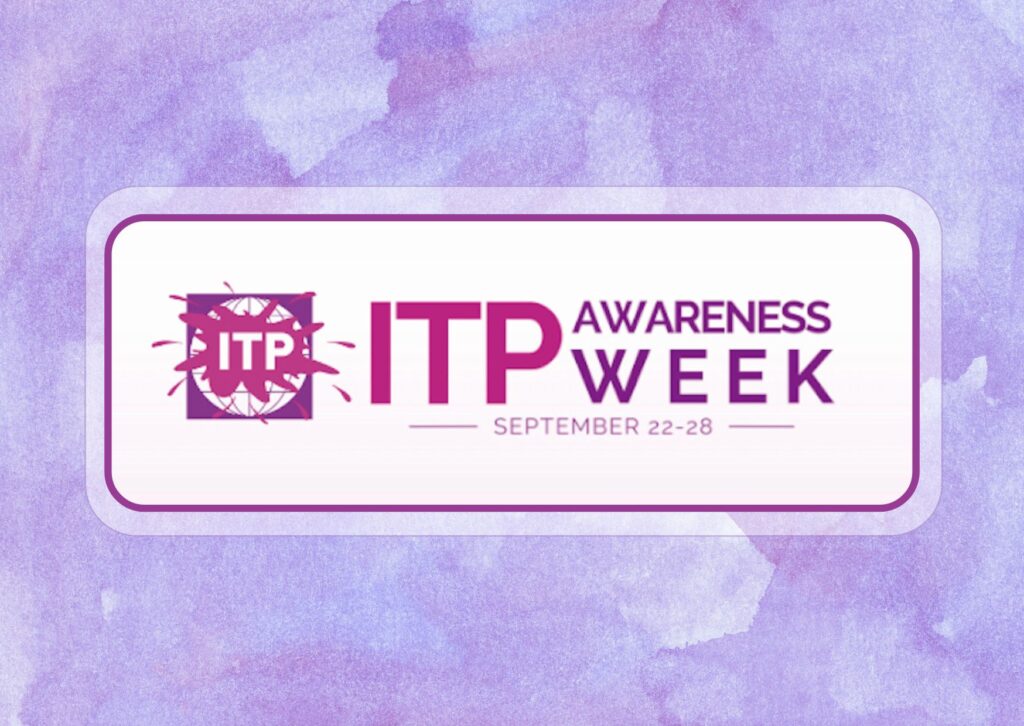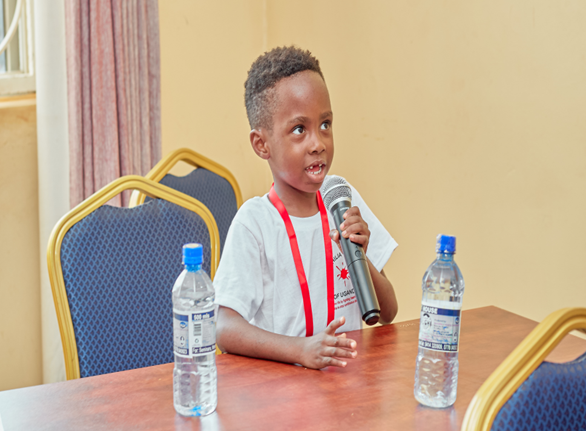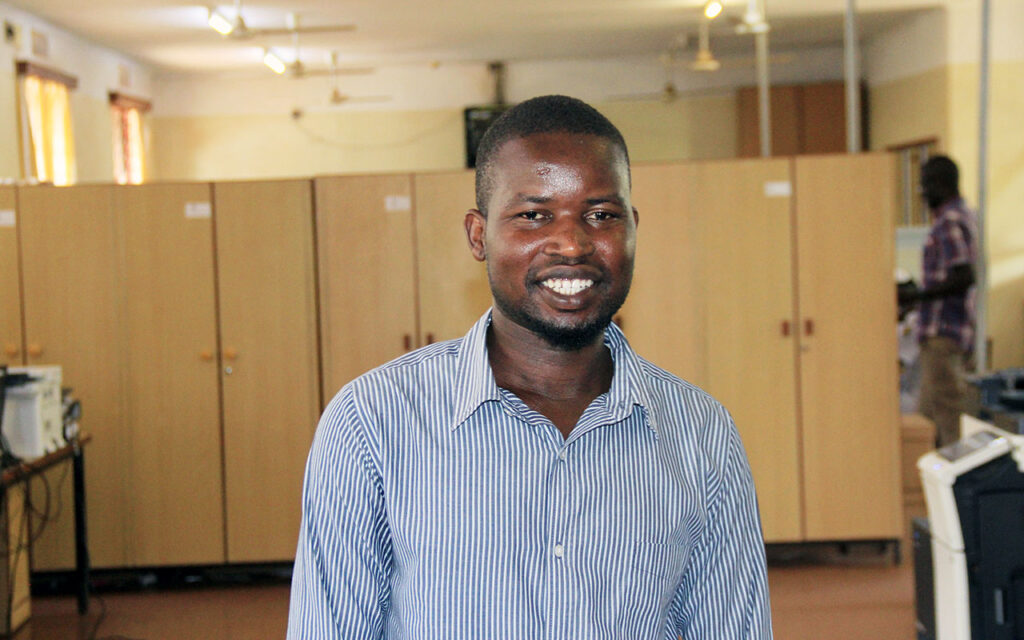ITP Awareness: Shining a light on immune thrombocytopenia
Did you know that this week (22-28 September 2025) is the tenth Global ITP Awareness Week?
Every September, ITP patient organisations around the world, under the umbrella of the International ITP Alliance, mark ITP Awareness Week to shine a light on immune thrombocytopenia, a rare autoimmune disorder estimated to affect over 200,000 worldwide at any one time.
We’re flying the flag for ITP Awareness this week too. It’s rare, difficult to diagnose, and characterised by low platelets and bleeding symptoms. Importantly, we know from our own research that people impacted by ITP can feel unheard and unseen.

ITP in brief
ITP can occur at any age and affects both males and females. It causes the body’s immune system to destroy platelets, affecting the blood’s ability to clot. Some people with ITP also have trouble producing platelets.
With fewer platelets in the blood than normal, people with ITP experience bleeding symptoms including easy bruising, petechiae (pinprick blood spots on the skin), nose bleeds, gum bleeds, mouth blood blisters, blood in the urine or stool, fatigue and, in women, heavy periods.
Unlike many of the bleeding disorders we research, it’s not genetic. In fact, the specific cause isn’t known, although it can sometimes appear after a viral or bacterial infection. It can be acute, persistent (6 months+) or chronic. Chronic ITP mostly affects adults.
The experience of women with ITP
ITP is known to affect more women than men. So, when we conducted the Cinderella study (published in 2022), exploring the lived experience of women with bleeding disorders in the UK, we were interested to hear from women with ITP.
Despite its rarity, over 20% of the almost 300 women we heard from were living with ITP. Although many of the symptoms experienced by study participants were similar, more women with ITP reported gum or mouth bleeds, bruises, and excessive bleeding after surgery, childbirth and miscarriage than women with other bleeding disorders. Almost half of them taken time off work and/or school due to the impact of ITP.
Sadly, along with women who carry the haemophilia gene, they also reported that their symptoms were normalised or dismissed when seeking help from non-specialist medical staff.
Even when seen in a specialist clinic, some women with ITP found their experience of healthcare un-reassuring. One woman told us: “Nobody ever talks to me and nobody has ever sat down and had an informed conversation with me.”
Like many women affected by a bleeding disorder, it seems that having ITP and being female can present something of a double-whammy when it comes to accessing the care they need.
ITP aware
Stories like this are why awareness-raising events like Global ITP Awareness Week are important. Living with a rare blood disorder can be a lonely experience but can be made all the better with a little understanding and recognition.
Understanding and recognition are also key when it comes to timely diagnosis, being heard by medical professionals, and being able to access the right care.
#ITPAwareness #Global4ITP #PaintThePlanetPurple
Information about ITP and ITP patient groups is available through the International ITP Alliance.
About the author
Kathryn Jenner is Communications and Community Manager at Haemnet Ltd.


